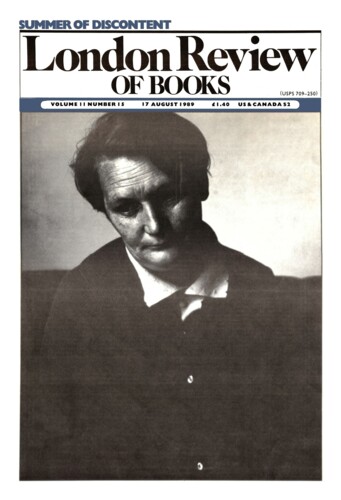I remember to have wept with a sense of the unnecessary.
‘Do you think me so ungenerous that I need to be deceived about this?
Do you think me such a fool that these tactics will deceive me?’
Now, on the contrary, I shall speak with reverence of liars.
What you must save for is the Golden Bowl,
Cast anthropoid, beaten to delicacy;
One depends for that, though hollow, upon industrialism,
Upon milk white metal, upon furnaces all night.
Having got the thing one may fill it when required, at leisure,
From any river, from the common tap;
Those cloud-pipes being frozen, with marine tears;
And there will always be flowers to stick into it in the springtime.
Lies would be more serious if one could lie about the matter in hand;
But it is an impertinence to think oneself so penetrating.
What people tell you by lies is how they would deal with this if it was true,
What they would like to make you think about this,
How they lie when they are lying about this,
The fact that they think this worth repeating or inventing,
Or the fact that they will endeavour to make this true,
And, whether the external circumstances are favourable to them or not,
These are important truths, and you have been told them.
People who feel that lies make life intolerable,
That it is madness to attempt living, since people are liars,
Are like people who look at the handbook before the picture,
Are like people who wish the words of a poem to have a single meaning,
Are unable to feel safe unless they are irrelevantly informed.
Lies are the discipline of knowing that people are not you.
It is licentious not to lie to a friend.
The belief in truth leads to many untrue beliefs.
It leads to the belief that a series of earnest statements make a poem.
If one could speak the whole truth about lies one would be contradicting oneself.
Do you think me so ungenerous that I need to be deceived about this?
Do you think me such a fool that these tactics will deceive me?
To Charlotte Haldane
(who asked for a poem on her birthday)
A task of terror. I must first dissent
From all the frankness that such themes intend,
And all who blame and who commend.
What insolence and what abandonment
To claim at large that one has known a friend,
And, knowing, could in thought amend;
That all her value, in such knowing pent,
One dare show her, and say no more was meant,
‘Madame, I’addition,’ on one paper penned.
And would I sum you to your end,
Even to reign, myself, God at your judgment,
And so assure you what he best can send?
The Extasie
Walking together in the muddy lane
The shallow pauses in her conversation
Were deep, like puddles, as the blue sky;
So thin a film separated our firmaments.
We who are strong stand on our own feet.
You misunderstand me. We stand on the reflections of our feet.
Unsupported, we do not know whether to fall upwards or downwards,
Nor when the water will come through our shoes.
Send Letters To:
The Editor
London Review of Books,
28 Little Russell Street
London, WC1A 2HN
letters@lrb.co.uk
Please include name, address, and a telephone number.

